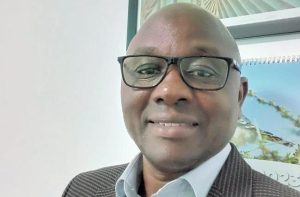May 5 is African World Heritage Day. On this day, the world joins Africa in celebrating its unique cultural and natural heritage. Natural Heritage sites, such as the Mount Nimba Strict Nature Reserve in Cote Ivoire and Guinea, Lakes of Ounianga in Chad, Ngorongoro Conservation Area in Tanzania, Djoud National Bird Sanctuary in Senegal, or the Okavango Delta in Botswana, showcase the marvels of natural areas and their role in protecting rare plant and animal species. Cultural heritage areas demonstrate the legacy of human artifacts or intangible attributes inherited from the past.

Adopted over 50 years ago, the UNESCO World Heritage Convention provides for the identification and protection of cultural and natural heritage sites around the world. These sites contribute significantly to sustainable socio-economic development, such as eco-tourism. They also provide critical ecosystem services – such as water provision, flood control and carbon absorption – that support the well-being of and are a source of livelihood to many local communities.
Sites are inscribed on the World Heritage List based on their “Outstanding Universal Value” (OUV) – the cultural and/or natural aspects of a site that are so exceptionally significant, that they are of common importance for both present and future generations of all humanity. Parties to the World Heritage Convention commit to protect and conserve cultural and natural heritage, and to present and transmit such heritage to future generations.
Despite this, World Heritage Sites across the world are under increasing pressure from a variety of human activities, including the development of roads, railways and oil pipelines, extractive activities like mining, oil and gas exploration, and expansion of human settlements and urban areas and agriculture. It is imperative that decisions about whether to approve such projects be informed by proper consideration of impacts on sites’ OUV. Unfortunately, however, there is a mounting number of examples from Africa in which such impacts have been disregarded and decisions of the World Heritage Committee seemingly ignored. There are also worrying examples of sites being mismanaged and neglected, resulting in the gradual erosion of the values for which they were established.
While Africa is home to about 12% of all inscribed sites worldwide, a staggering 39% of African World Heritage Sites are on the List of World Heritage in Danger – those at risk of losing their OUV.
Some of the notable large scale development activities that are currently a concern for World Heritage Sites in Africa include oil and gas exploration that potentially threatens the Okavango Delta World Heritage Site in Southern Africa; the ongoing Julius Nyerere Hydropower Project in Tanzania’s Selous Game Reserve; and the proposed Batoka Gorge Hydroelectric Scheme, whose reservoir would inundate part of the Mosi-oa-Tunya/Victoria Falls World Heritage Site in Zambia and Zimbabwe.
The BirdLife International Africa Partnership – a network of 26 civil society organisations in 26 African countries championing conservation of biodiversity and sustainable development – has constantly urged African governments to secure World Heritage Sites from damaging development and mismanagement. In 2021, BirdLife Partners in Southern Africa published a joint statement ahead of the 44th session of the World Heritage Committee, voicing their concerns over the threats facing key World Heritage Sites. They called upon African States Parties to comply with their obligations towards the protection and sustained conservation of these sites.
In November 2022, all BirdLife Africa Partners signed and sent a joined statement to the World Heritage Centre and members of the World Heritage Committee, decrying the increase of large development and extractive industry projects being proposed and approved in and around these sites and calling for enhanced action by governments to protect them and improve their management. This statement was sent on the 50th anniversary of the adoption of the World Heritage Convention.
The statement urged governments to fully comply with their commitments under the World Heritage Convention and various other regional and global environmental instruments, to reconsider projects that would negatively impact World Heritage Sites, and to mobilise funding to effectively manage natural World Heritage Sites in their territories. It also called upon both governments and the corporate sector to consider these sites as ‘No-go’ areas for harmful, large-scale development projects.
On this African World Heritage Day, we again urge African governments and developers to follow global best practice by avoiding negative impacts on World Heritage Sites within their jurisdiction. While development is vital, it must not proceed in a manner that compromises the Outstanding Universal Value of these sites and the role they play in protecting biodiversity, providing water and mitigating climate change by absorbing dangerous carbon. If a proposed project’s negative impacts on a World Heritage Site cannot be minimised to an acceptable level, then the proposal should be rejected.
Critically important is the need to undertake robust Environmental Impact Assessments (EIAs), with thorough public participation, to ensure that any developments projects do not have significant negative impacts on biodiversity or cause irreversible socio-economic and environmental damage – including by damaging sites’ OUV.
In conclusion, we underscore the need to amplify the role that local communities and the public can play in protecting natural and cultural heritage. Many across the African continent are not aware of these important assets. Governments and civil society actors must design awareness raising programmes that integrate natural and cultural heritage messaging action into daily lives. The role of social and traditional media in doing this will be key.
As we mark African World Heritage Day let’s all resolve to do more to protect Africa’s s unique natural heritage. The BirdLife International Africa Partnership remains committed to sharing information and raising awareness on our rich African natural heritage.
Ken Mwathe is the Policy and Communications Coordinator, BirdLife International Africa (Email: ken.mwathe@birdlife.org)
